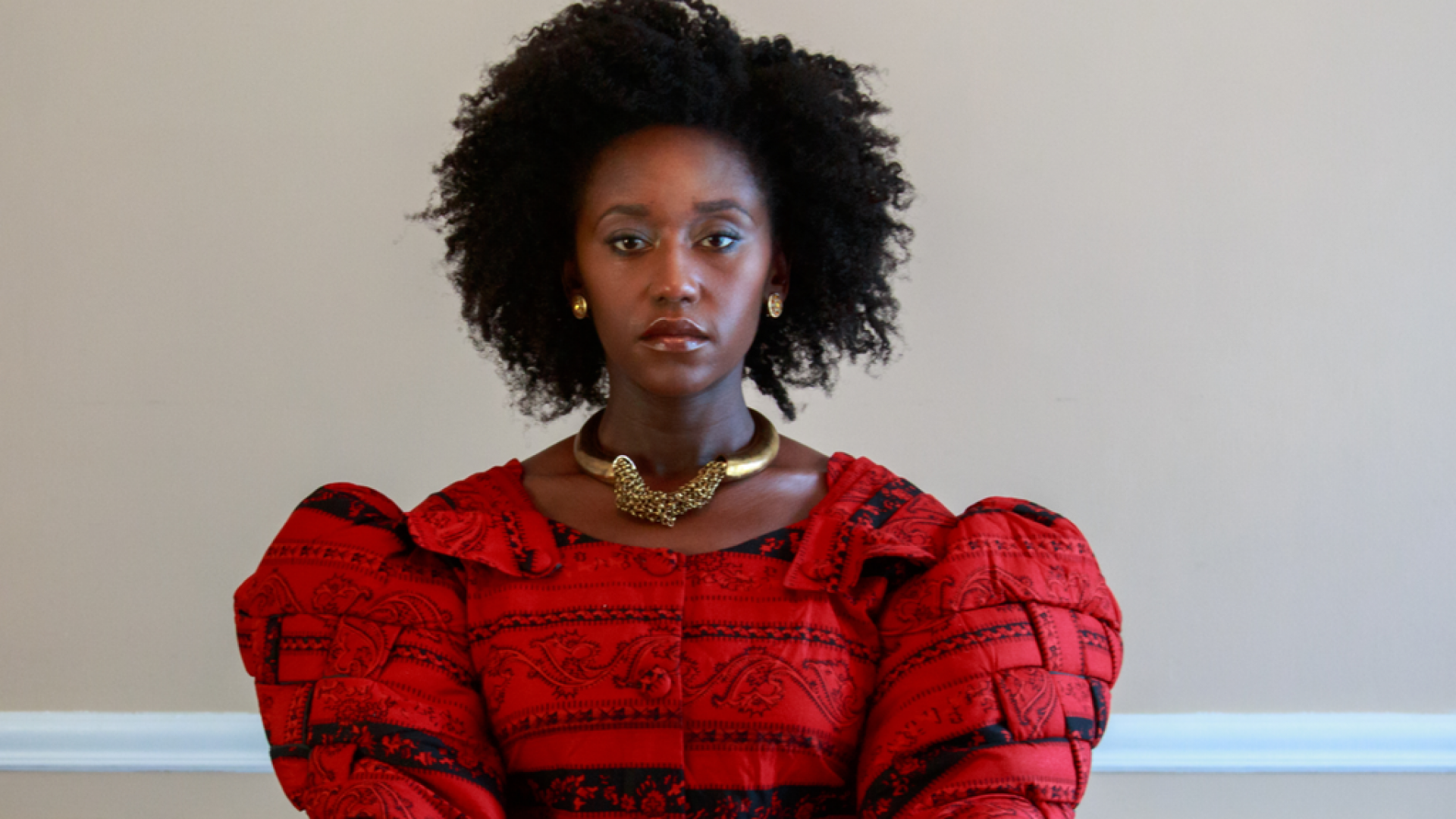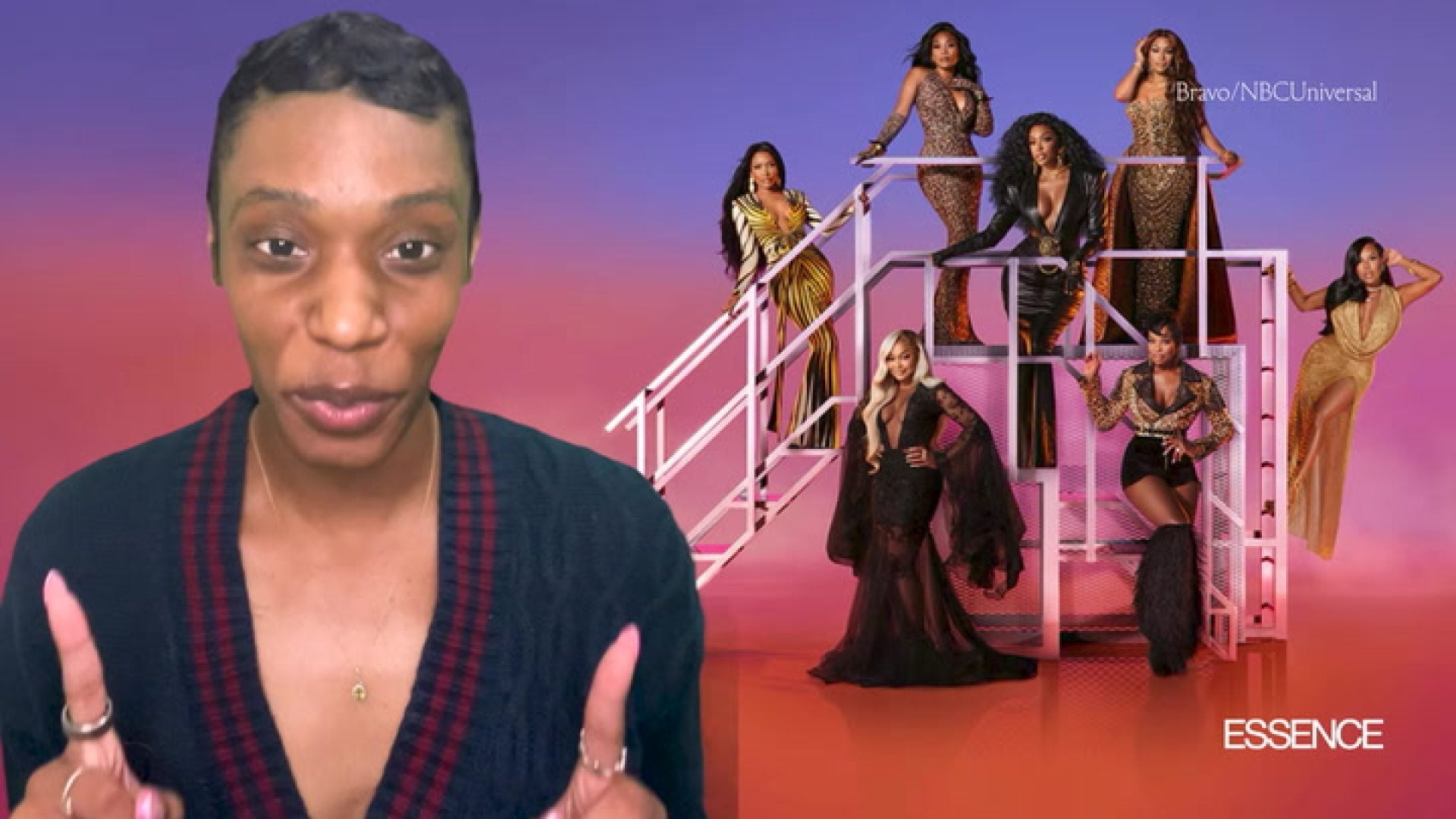
The children of immigrants occupy a very particular space. It is often one of pride and reverence, and sometimes assimilation, shame, and distance. In her directorial debut, Queen of Glory, writer, director, and star Nana Mensah eloquently captures what happens when you are forced to face the place you left behind in order to figure out who you truly are.
In the film, Mensah stars as Sarah Obeng, a doctoral candidate at Columbia University. She has worked to distance herself from the Ghanaian-American community where she was raised in the Bronx. Sarah spends her days grading papers, eating takeout, and sneaking around with her married boyfriend of three years, Lyle (Adam Leon). When she does return to her old neighborhood, it is only out of obligation to appease her pushy aunties who constantly comment on her weight and singleness, or to ship her estranged father Godwin (Oberon K.A. Adjepong) select items to Ghana.
Hyper-focused on the fantasy of her life — without actually seeing it for the mess that it is — Sarah has little time for her family. However, just as she’s plotting to move to Ohio with Lyle, Sarah’s mother dies unexpectedly, and life as she knows it comes to a thundering halt.
So much of Sarah’s identity in Queen of Glory stems from her actively distancing herself from her family and culture. However, when she becomes the sole beneficiary of her childhood home and the King of Glory Christian bookstore that her mother owned, she is forced to deal with her grief while examining the life and legacy that her mother built as more than just an inconvenience. Mensah brilliantly highlights this by slicing in home-video montages of funeral rites in Ghana to highlight the journey and the traditions of Sarah’s culture.
A great deal of moving through grief is walking around in a fog and going through the motions. It’s something that Mensah captures perfectly on screen. For example, Sarah can barely catch her breath after receiving the shocking news of her mother’s death, but she doesn’t even take a moment to cry. After putting her own life on hold, she’s tasked with figuring out the next steps for her mom’s house and business. Sarah also must contend with planning a wake, informing her mother’s relatives about her death, and preparing all of the intricate details that come with a traditional Ghanaian Rites of Passage.
With nothing much else to hold on to, Sarah clings to this idyllic life she’s planned in her head for herself and Lyle while willfully ignoring how some of her decisions might directly affect others — namely her mother’s face-tattoo donning employee, Pitt (Meeko Gattuso) or Lyle’s wife and children. Yet, despite her overt selfishness at the beginning of the film, the circumstances surrounding Sarah’s return home force her to grow and allow her to shine.
So often, the children of immigrants are expected to conform and adjust to traditions or bite their tongues in the face of wrongdoing. Sarah refuses to do any of that. Though she indulges her pushy aunties, who have a slew of requests and requirements, when her father comes to town showcasing his sexist ideologies and his lack of respect, Sarah pushes back. The confrontation allows her to finally grieve her mother’s loss and decide what’s best for her moving forward.
Though the film is mostly well-paced, some aspects of Queen of Glory are a bit chaotic, namely the sequences with Sarah’s lively but well-meaning Russian neighbors who randomly show up to her mother’s wake. Unfortunately, those particular scenes don’t quite fit in with the overall tone or narrative of the storyline. Still, the sharper aspects of the film, especially Sarah’s interactions with the cookie-baking Pitt pushes the film back into focus.
With the Pelham Bay neighborhood of The Bronx as her backdrop, Sarah tries to put her mother’s affairs and the chaotic life she’s left behind in Manhattan in order. A mostly charming film about loss and self-reflection, Queen of Glory is about Sarah’s quest to merge the person she is with the woman she wants to be and figure out why she was so determined to distance herself from her past to begin with.
Queen of Glory was reviewed at the 20th annual Tribeca Film Festival.





